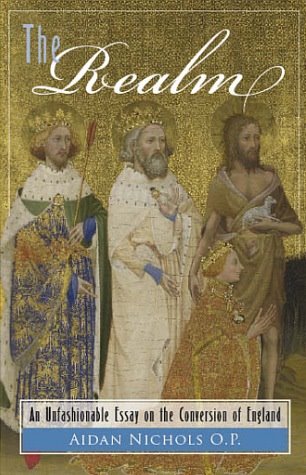War is peace
"In His will is our peace; it is the sea into which all things are drawn by Him who created all the works of nature." (Dante's Paradiso 3: 85-87)
In a recent post, Dreadnought speaks of what same sex attraction demands of the Christian..."the radical humility, the ego-kill, the sometimes literally bloody discipline that Christianity demands of its adherents, even her intellectuals, certainly her same sex attracted children".
I haven't a thing in common with Dreadnought in his SSA. My lusts are all too conventional. But his story (well worth reading on his site) is very much like mine, and every human being's. The divine prescription is the same for all of us.
But isn't this God at war with us? Doesn't he want to take away the very things that we love most? This is the old, false image of the God whose favourite words are "can't", "shouldn't" and "stop it", a false image that we feel tugging at our coat fringe whenever temptation rears its ugly head.
God is not at war with us, but with the sins that cripple us. The loveless, brutal world of the daily newspapers is the consequence of that sin. But God's love is an astounding, limitless and dangerous love. The radical humility we need is matched by His radical determination to save us, by surgical means if necessary.
And if we let Him, we will ultimately become everything he created us to be. Contemplate this description of C.S. Lewis' The Great Divorce, which says it better than I ever could:
Readers of C.S. Lewis's The Great Divorce will remember the myth in which the dreamer encounters various souls at the point of choosing heaven or hell: choosing, that is, to abide with their besetting sin -- and so be damned -- or to throw it off by accepting the offer of salvation. One of the figures is an oily, dark man "parasitized" by a lizard-like creature perched on his shoulder and continually whispering into his ear. After much pathetic reluctance, the man permits his parasite to be ripped away from him and killed, whereupon the man -- almost killed himself by the pain -- stands erect and whole; and the slain lizard (in one of Lewis's better imaginative thrusts) comes back from death to life, no longer as a reptile but as a great stallion, which the man mounts and controls with perfect mastery.
Lewis's lizard is an allegory of any high-energy habitual sin -- i.e., any besetting lust, whether the lust be lust for power, or acclaim, or the satisfactions of the flesh. It's not a question of dividing "good" lizards from bad; any sin that a man ultimately refuses to do without will damn him. And any man, when he is in the grip of his pet obsession, convinces himself that he can't survive apart from it: his parasitism tries to be accepted as symbiosis, or even to claim identity with the host organism ("I am who I am"). Yet, in this scheme, every parasite is a perversion of a desire originally wholesome. When the perversion is put to death -- mortified, in traditional language -- the underlying wholesome desire becomes free to take on its proper life, sub ordinated to the rationally governed human will. The bloodsucking reptile becomes an obedient warhorse. "





No comments:
Post a Comment